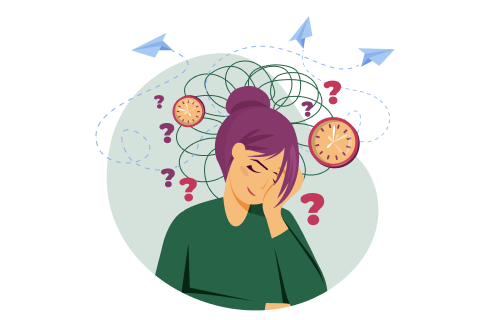Pregnancy is often described as a time of joy and anticipation. For many women, it can also bring unexpected waves of anxiety and depression. Between hormonal changes and the emotional weight of preparing for a new life, it’s no wonder mental health struggles are common during this stage. Left unaddressed, these feelings can impact both the mother and the baby. Let’s explore practical strategies to manage anxiety and depression.
Seek Support
Building a strong support network forms the foundation of mental health management during pregnancy. Healthcare providers specializing in maternal health can assess symptoms and develop appropriate treatment plans. Regular prenatal appointments provide opportunities to discuss mental health concerns and receive professional guidance.
Family members and friends can offer emotional support and practical assistance. Sharing feelings and concerns with trusted individuals helps reduce feelings of isolation and provides a valuable perspective. Support groups for pregnant women experiencing similar challenges provide a valuable opportunity to connect with others who understand these experiences.
Prioritize Self-Care
Self-care practices play a key role in supporting mental health throughout pregnancy. Maintaining regular sleep schedules may help regulate mood and energy levels. Adequate rest becomes increasingly challenging as pregnancy progresses. Establishing consistent bedtime routines and creating a comfortable sleep environment can help improve sleep quality.
Nutrition affects both physical and mental health during pregnancy. Balanced meals that include protein, complex carbohydrates, and healthy fats help stabilize blood sugar levels and support brain function. Prenatal vitamins provide extra nutrients that support overall health and well-being. Physical activity, when approved by healthcare providers, can reduce anxiety and depression symptoms.
Manage Stress
Stress management techniques help reduce anxiety and prevent depression symptoms from worsening. Deep breathing exercises can be performed anywhere and help activate the body’s relaxation response. Progressive muscle relaxation involves tensing and releasing muscle groups to reduce physical tension.
Mindfulness practices help women stay present rather than worrying about future concerns. Meditation, even for short periods, can reduce stress hormones and promote emotional balance. Prenatal meditation classes provide structured guidance for developing these skills. Time management and boundary setting may also help reduce overwhelming feelings. Breaking tasks into smaller, manageable steps prevents stress from accumulating.
Contemplate Therapy
Therapy provides structured support for managing anxiety and depression during pregnancy. Cognitive-behavioral therapy helps identify and change negative thought patterns that contribute to mental health symptoms. Interpersonal therapy focuses on relationship dynamics and communication patterns that may affect mental health.
Pregnancy often changes relationships with partners, family members, and friends. Therapy can help navigate these changes and improve support systems. Group therapy connects women with others experiencing similar challenges. Shared experiences provide validation and reduce feelings of isolation. Group settings also offer opportunities to learn coping strategies from others who have successfully managed mental health during pregnancy.
Schedule Your Pregnancy Care Appointment Today
Managing mental health during pregnancy requires comprehensive care that addresses both emotional and physical well-being. Professional support, self-care practices, and therapy can help women navigate anxiety and depression while promoting healthy pregnancies. Early intervention and consistent care improve outcomes for both mothers and babies. Schedule your pregnancy care appointment for comprehensive prenatal care and explore treatment options for your mental health needs.

